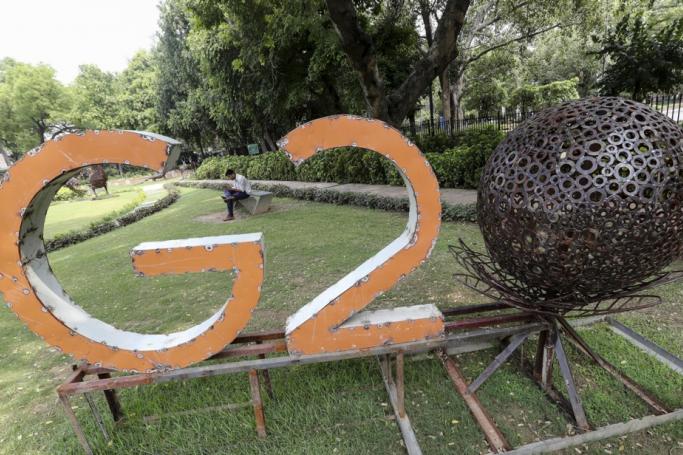A month from now India will be hosting the prestigious G20 summit. The leaders of the world’s biggest and most influential economies, making up 85% of the global economy and 75% of international trade, will meet in New Delhi on 9th and 10th September.
Hosting the summit is a key moment for India’s populist President Narendra Modi, ahead of elections in India early next year. It is the first time India has hosted the summit and the first time it has been held in South Asia. With Presidents and Prime Ministers, including US President Biden, arriving early for bilateral meetings as well, it’s an opportunity for Modi to demonstrate that India is a leader on the world stage.
But with leadership comes more scrutiny, and India’s policy towards neighbouring Myanmar could, and should, overshadow the summit. The G20 will bring together countries which have sanctioned the Myanmar military and are trying to prevent the supply of revenue and arms to the military with those which are actively arming and funding the military.
For the past two years, Modi has already been hosting a string of visits from Presidents and Prime Ministers and Myanmar is barely discussed, if at all, let alone there being any criticism of India’s policy. Modi has been given a free pass on arming a military which is committing war crimes, crimes against humanity and is being investigated by a UN court for committing genocide. A rare exception was the joint statement between Biden and Modi in June, which included a reference to Myanmar but without any practical action, stating:
“The leaders expressed deep concern about the deteriorating situation in Myanmar, and called for the release of all those arbitrarily detained, the establishment of constructive dialogue, and the transition of Myanmar toward an inclusive federal democratic system.”
Language on stopping the flow of arms to the Myanmar military was removed from the draft of the UN Security Council resolution which was passed in December last year. It was India which led objections to the wording, and then joined with Russia and China, two other countries arming the military, in abstaining in the vote.
While western countries have prioritised economic opportunities and geopolitical considerations in their bilateral dealings with Modi, collectively will they have more courage to challenge Modi over his support for the Myanmar military? Discussions over the communiqué are already happening.
It’s not just Modi’s arming of the Myanmar military which should be raised at the summit. There are a whole range of issues which need to be addressed.
The diplomatic protection India provides to the military goes beyond the UN Security Council. In April, India hosted a meeting of the so-called track 1.5 process initiated by Thailand, which claims to have the goal of promoting constructive dialogue, while only inviting the Myanmar military to its meetings and not genuine representatives of the Myanmar people. The process is widely perceived as a sham which legitimises the military while at the same time attempting to sideline ASEAN members which are more critical of the military.
Indian companies are working with the military on the controversial Kaladan Multi-Modal Transit Transport Project in Rakhine State, and companies such as Adani were willing to enter into joint ventures with the military before eventually being forced to withdraw.
India is also willing to assist in the genocidal policies towards the Rohingya, and attempts to avoid justice, paying for the construction of prison camps in Rakhine State which Rohingya were to be held in if they agreed to return from refugee camps in Bangladesh. The entire refugee repatriation process is a public relations sham motivated in large part by the ongoing genocide case at the International Court of Justice.
India’s treatment of refugees from Myanmar has also been appalling. India is not party to the 1951 Refugee Convention and refugees face insecurity and many challenges. Longstanding smaller communities of mostly Chin and Rohingya refugees have been joined by tens of thousands of new refugees since the attempted coup began in February 2021. Rohingya refugees have faced arbitrary arrest, beatings and torture. Refugees fleeing attacks by the Myanmar military have been threatened with forced returns.
In June, G7 leaders stated: “We reiterate our call on all states to prevent the flow of arms into Myanmar.” At the G20 they must do everything they can to turn words into action.
Nine of the G20 members, Argentina, Brazil, China, Indonesia, India, Mexico, Russia, Saudi Arabia and South Africa, do not have arms embargoes in place. The US, UK, EU and Canada should be engaging these G20 members now to win over more countries to supporting an arms embargo and isolating India on its home ground.
India’s Myanmar policy is primarily driven by two factors, limiting Chinese influence and security in north-eastern India. Concern for human rights and support for democracy is simply not a factor in
Indian foreign policy making towards Myanmar. Modi has paid no diplomatic price for this unprincipled approach. The G20 summit is an opportunity to change this.
Mark Farmaner is Director of Burma Campaign UK
The views expressed do not necessarily reflect the opinions of Mizzima Media Group.












